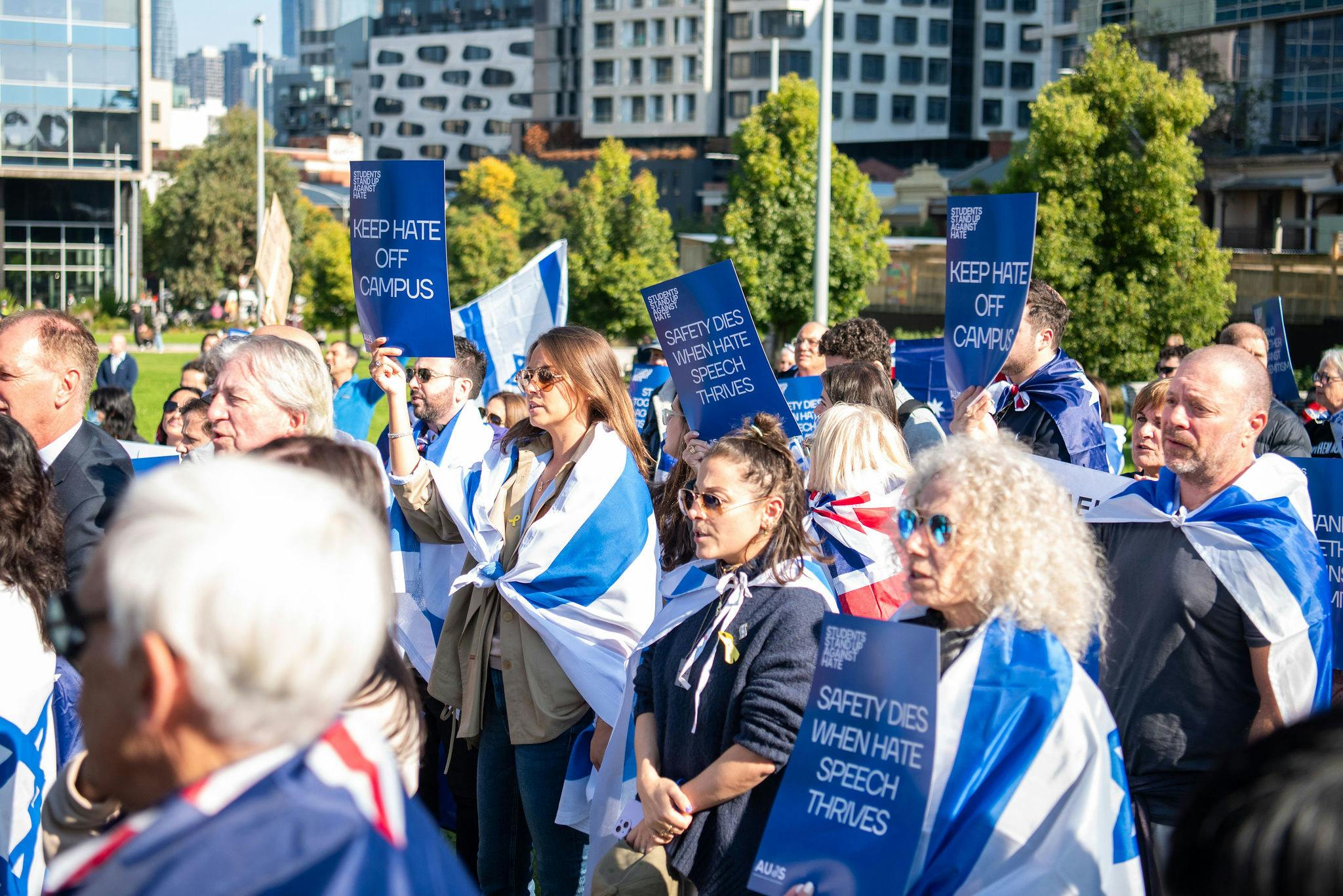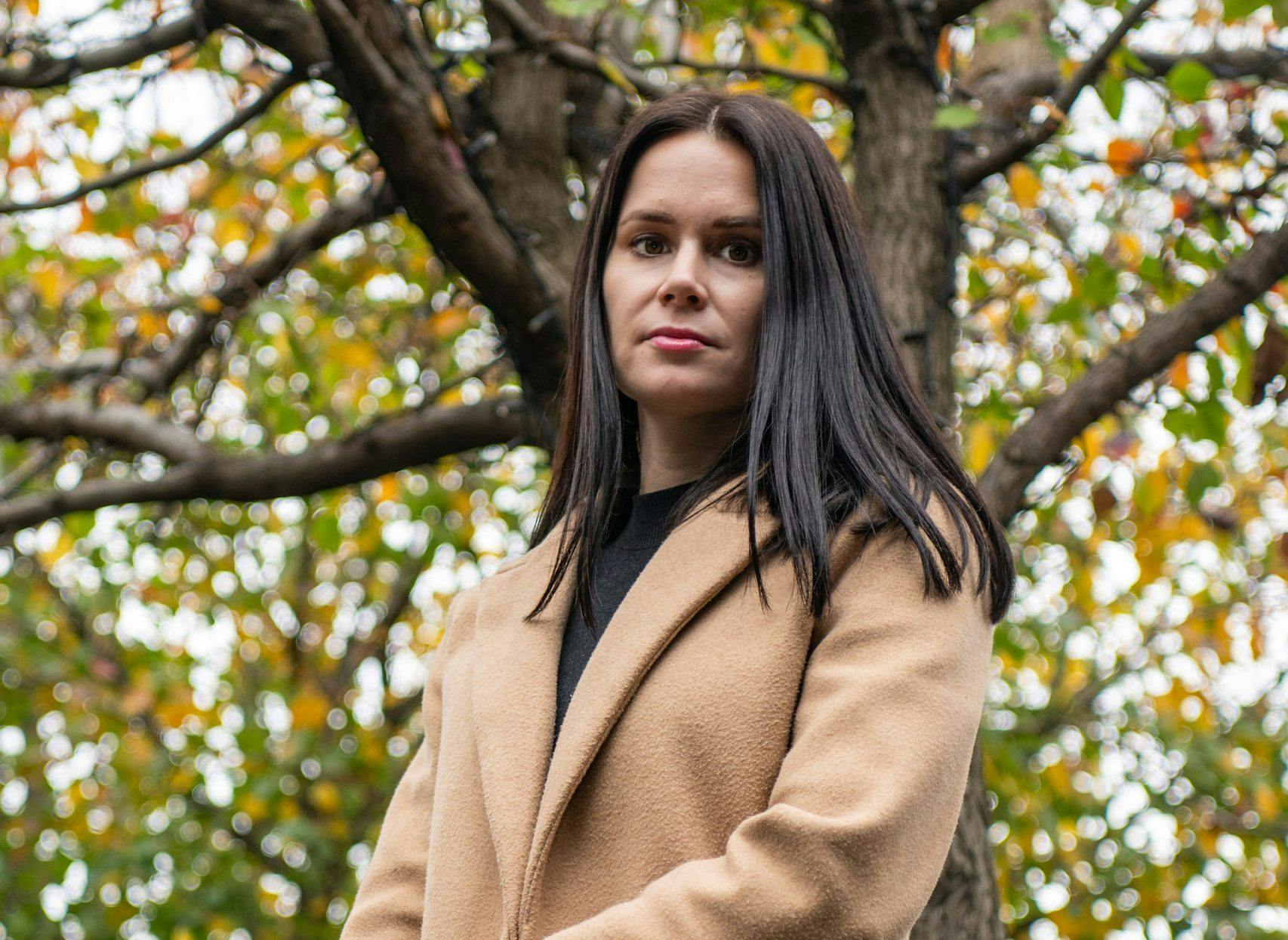Published: 25 October 2022
Last updated: 5 March 2024
Last month two Hazara families flew into Sydney from a Turkish refugee camp to start a new life, thanks to a group of refugee advocates. STEVE MEACHAM asks one of the group’s founders how they did it.
The meeting at Sydney airport last month between nine Muslims and the diverse group of volunteers including Jewish men and women who had helped orchestrate their safe delivery from Turkey was always going to be emotional - despite the fact they’d never actually met face to face.
Sure, the two families - one of five, another of four - had corresponded with Anna Buch and her fellow refugee advocates by Zoom. But that’s not the same as landing in Australia and knowing you’re finally safe and having a real roof over your head.
“We picked them up at the airport and took them out to the house and apartment we’d arranged for them in Merrylands (a suburb in western Sydney),” Buch explains.
“Rather than get them short-term accommodation for a week or two, we got them homes they could live in while we sorted out other things that needed to be done – like signing them up for Medicare, English lessons and public transport.”
How Buch and her fellow refugee advocates came to be at Sydney airport is a long and inspiring story.
Around 1500 refugees will be resettled under the CRISP project. It’s based on a Canadian model; private citizens get together and support a family coming into the country, financially and physically.
Buch is a co-founder of Supporting Asylum Seekers Sydney (SASS), formed in 2013 by a bunch of concerned citizens who began visiting Sydney’s Villawood Immigration Detention Centre every week because they felt none of Australia’s major political parties were showing the compassion refugees deserved.
SASS has since had to show flexibility amid Covid and changing government policies. These first nine refugees arrived as part of the Community Refugee Integration and Settlement Pilot (CRISP), a partnership which was launched in July between the federal government and Community Refugee Sponsorship Australia (CRSA), a charity which matches refugee families with families able to support them.

Others had arrived before they did. Andrew Giles - Labor’s “new” Minister for Immigration, Citizenship and Multicultural Affairs - greeted the first families, describing the program as “a dedicated pathway for refugees … who do not have family links in Australia.”
Community groups taking part in this pilot scheme have all had training to help settle the refugees successfully.
Around 1500 refugees will be resettled under the CRISP project before June 30, 2025. “It’s based on a Canadian model,” Buch explains. “Private citizens get together and support a family coming into the country, financially and physically.”
The model requires a minimum of five Australian hosts per refugee family. “But we chose larger groups, to give volunteers a bit more flexibility: three groups of eight hosts to support the first three refugee families,” Buch explains.
Community groups taking part in this pilot scheme have all had training to help settle the refugees successfully.
These predominantly Shi'a Hazara families have been long persecuted by the majority Sunni Muslims in Afghanistan and neighbouring Asian countries.
Hazara speak a variety of Persian (Iranian), mixed with words from Turkic and Mongolian. In “normal times”, they live in fortified villages made of mud-brick homes and spend their time peacefully cultivating grain, legumes and fruits in the valleys while being shepherds to flocks on the hillsides.
Sadly, life hasn’t been normal for the Hazara since the Soviet Union invaded Afghanistan in 1978, sparking a resistance from the Mujahideen, which later gave way to the Taliban who rule Afghanistan today.
“Hazaras have always been on the move,” Buch continues.

After all the waiting and uncertainty of their journey, however, the hardest part of resettling these refugees was dealing with local real estate agents.
“None of them wanted to know us,” she says. “We looked like high risk to them.”
Refugees? “One of the senior agents said, ‘I’ll tell you what properties you need to go for - the ones that have been on the market for ages and no one else wants’.”
He was right, up to a point. “Some properties were filthy, smelly, run down,” Buch continues. “We had to pull out all of the stops to make them into a reasonable state. That meant cleaning, repainting, replacing (illegal) electrics. We worked like navvies.”
However, the first [apartment] they secured came about by serendipity. “The real estate agent didn’t turn up because he was sick,” Buch explains. “So the two girls there to see the property went downstairs and knocked on a door.”

It turned out that the woman who opened the door was the landlady. “The girls explained the situation, and the landlady listened, and said she was happy to accept the application.” Buch believes the landlady was much more open and compassionate beause she had met them in person.
Thereafter, each time the group puts in a tenancy application, Buch or one of her fellow volunteers asks to talk directly to whoever owns the property (albeit with limited success).
SASS will be supporting a fourth refugee family by the time this story is published.
There’s been a hold-up getting the “third family” clearance to come to Australia. Buch says she has no idea what the delay has been caused by, though “the Department of Home Affairs doesn’t have a problem at our end”.
No-one, she says, “has been able to tell us what the hiccup (over the third family) is about. I don’t think it’s the Australian government, the United Nations High Commission for Refugees or the
The idea is that within 12 months they will be fully independent and functioning on their own terms in Australian society. Of course, we’ll always be friends.
International Organisation for Migration.”
Nevertheless, there are practical considerations. As Buch points out, “we’re already committed to the rent for the third house, so we want a family to be living there as soon as possible.
“We’ve signed the paperwork for a fourth family, and we expect them to be here in Sydney within four weeks (by end of October).”
Meanwhile, SASS is searching for a third house to accommodate the delayed “third family”. “If worst comes to the worst, we’ll have two families arriving together, so we’ll need more like-minded volunteers.”

Anyone who signs up should be aware that the SASS membership duties carry long-term responsibilities. “Our commitment to the government program is that we work with each refugee family we bring in for a year.
“The idea is that within 12 months they will be fully independent and functioning on their own terms in Australian society,” Buch says. "Of course, we’ll always be friends.”
But what about the security issues of bringing these refugees to Australia? “CRSA works with the Department of Home Affairs, the United Nations High Commission for Refugees and the International Organisation for Migration,” Buch explains.
“The Australian government decides who is worthy and who is in need.”
CRISP was actually implemented under the former Morrison government. “We heard about it when we were visiting Villawood. When Covid started it couldn’t get off the ground.
“So rather than do nothing, CRSA decided to identify refugees already in the country, opening up a program for any groups willing to mentor them. We were one of many groups which volunteered, saying: ‘We’ll have a go!’”
Two and a half years later, and under a new government, the pilot scheme is now progressing at a pace.
The fact that she’s Jewish and the refugee families she and SASS families are aiding are Muslim is neither here nor there, Buch says. “Cultural differences don’t matter. They need help, and we’re in a position to provide it.”
CRISP: Community Refugee Integration and Settlement: refugeesponsorship.org.au
Photo: The SASS Group 2 family enjyoing their new home in Merrylands in Sydney's west
All photos courtesy of Anna Buch




